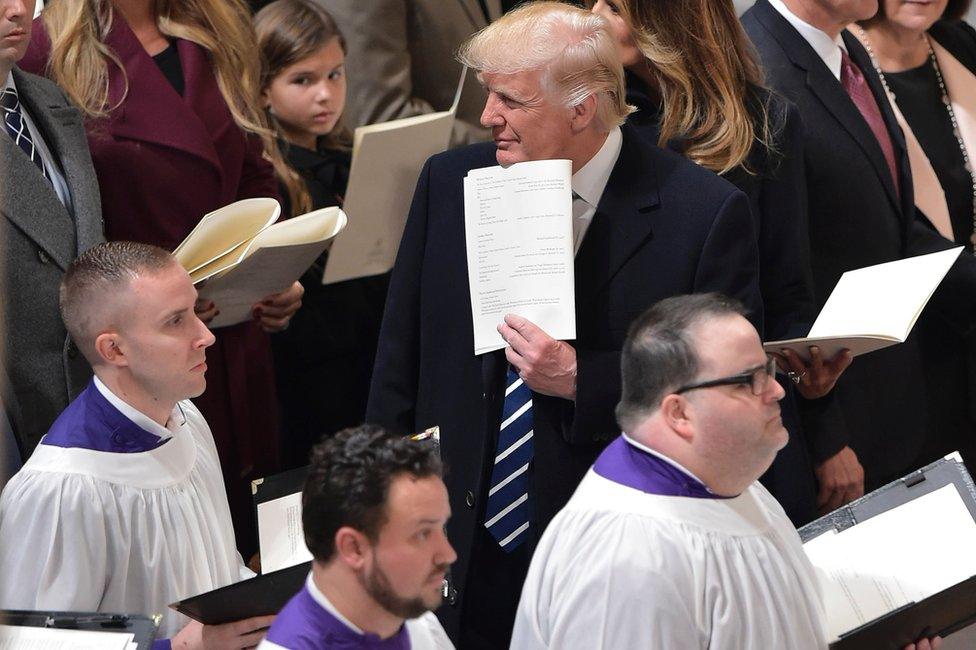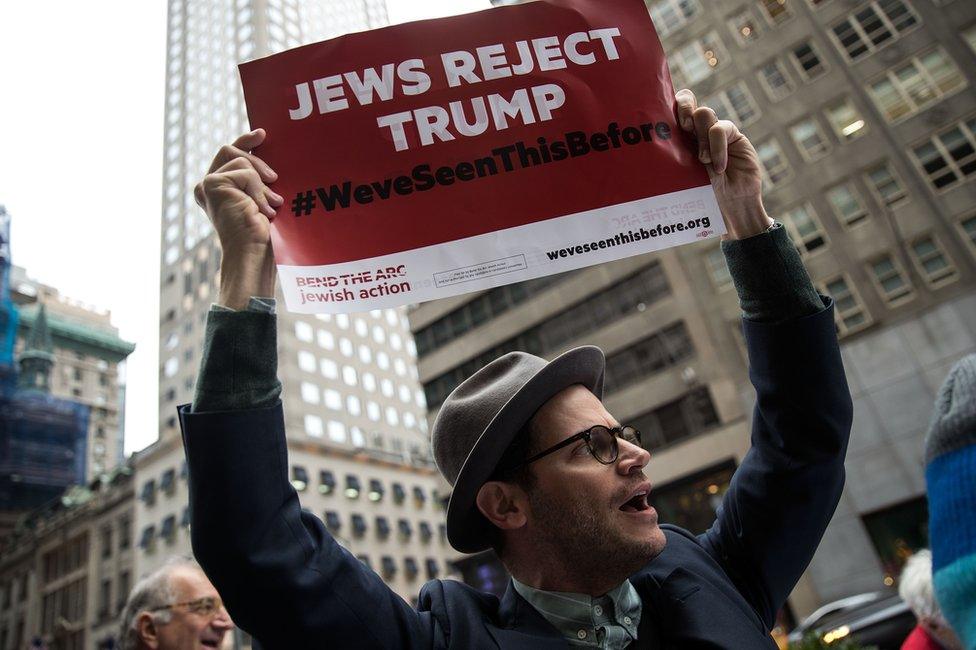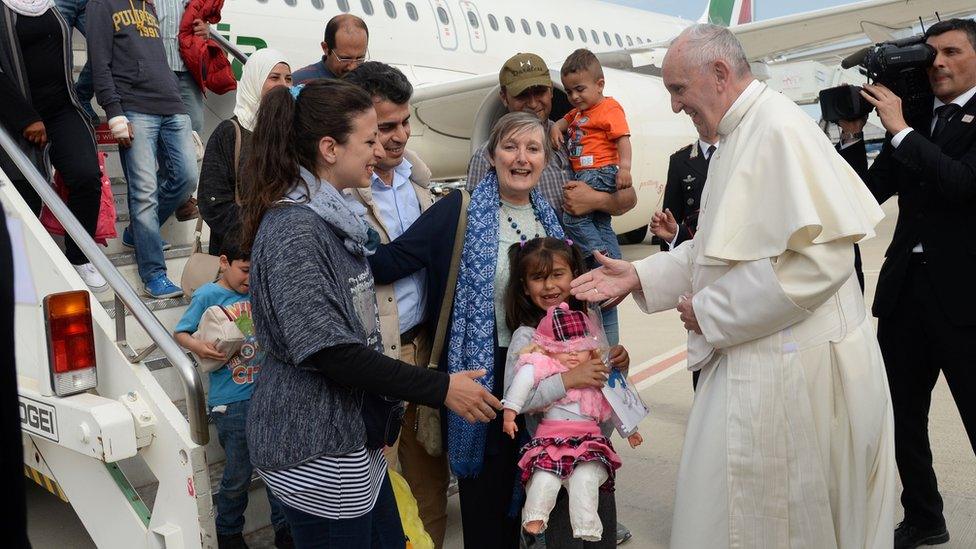Trump ban: 'Everyone matters to God,' religious groups say
- Published

Donald Trump's immigration order goes against the teachings of the bible, say church leaders
He may have secured the votes of four out of five white evangelical Christians and a majority of white Catholics, but President Donald Trump's decision to issue an executive order barring immigrants from seven Muslim-majority countries and blocking all refugees from Syria is attracting criticism from across the spectrum of religious belief.
The Reverend Samuel Rodriguez, who prayed at Mr Trump's inauguration and is president of the world's largest Hispanic Christian organisation, representing more than 100 million evangelicals, is signatory to a group letter asking Mr Trump to reconsider his suspension of refugee resettlement.
The letter, external, signed by eight other Christian leaders, says: "The Bible teaches us that each person - including each refugee, regardless of their country of origin, religious background, or any other qualifier - is made in the Image of God, with inherent dignity and potential.
"Their lives matter to God, and they matter to us."
Another clergyman who took part in the presidential inauguration, Cardinal Timothy Dolan of New York, told reporters on Sunday that the executive order "at first blush causes us some apprehension".
Cardinal Dolan, who has been described as a friend of the president, said he needed time to hear the views of legal experts before consolidating a final opinion.
The United States' largest Muslim civil rights organisation, the Council on American-Islamic Relations (CAIR), denounced Mr Trump's order and has filed a federal lawsuit on behalf of more than 20 individuals whom it believes have been unconstitutionally prevented from entering the United States.
The lawsuit, which was filed in a US District Court in Virginia, says the executive order is unconstitutional because "its apparent purpose and underlying motive is to ban people of the Islamic faith in Muslim-majority countries from entering the United States".

Jewish leaders have condemned the recent travel ban
These criticisms are being echoed in Britain. At the annual dinner of charity World Jewish Relief, Chief Rabbi Ephraim Mirvis condemned Mr Trump's action.
"President Trump has signed an executive order that seeks to discriminate based totally on religion or nationality," he said. "We as Jews, perhaps more than any others, know what it's like to be the victims of discrimination."
He added: "There are so many millions of refugees who are receiving no hope from the United States of America, of all countries."
The Archbishop of York, Dr John Sentamu, issued a statement expressing shock at the new immigration restrictions.
"It is extraordinary that any civilised country should stigmatise and ban citizens of other nations in the matter of providing humanitarian protection.
"In Christ, we are called to welcome the stranger especially when in desperate need."
On the same day as Mr Trump issued his order, he gave an interview to the Christian Broadcasting Network in which he claimed that his actions were not designed to discriminate against Muslims but instead to offer support to Christians, whom he said had been "horribly treated".

Pope Francis has urged compassion towards refugees, including from Syria
"If you were a Christian in Syria," he went on, "it was impossible, at least very, very tough, to get in the United States".
"If you were a Muslim, you could come in. But if you were a Christian, it was almost impossible."
Figures from the Refugee Processing Center do show that as far as Syria is concerned, just a few dozen Christians entered the US in 2016 compared with 15,000 Muslims.
But Christians make up fewer than 10% of the Syrian population and the UNHCR notes that they are less likely, external to seek refuge via its programme.
However, when other countries are taken into account, the US admitted almost as many Christian refugees (37,521) as Muslim refugees (38,901) in 2016, according to the Pew Research Center.
In addition to referencing facts, several Church leaders are appealing to theology to defend their opposition to Mr Trump's order.
Dr Tim Keller, the minister of Redeemer Presbyterian Church in New York and the author of Generous Justice, argues that the parable of the Good Samaritan in the New Testament explains why offering assistance to those in need must be a bedrock of Christian faith and practice.
"By depicting a Samaritan helping a Jew," he writes, "Jesus could not have found a more forceful way to say that anyone at all in need - regardless of race, politics, class, and religion - is your neighbour.
"Not everyone is your brother or sister in the faith, but everyone is your neighbour, and you must love your neighbour."
Correction 9 March 2017: This article has been updated to include specific figures for Syrian refugees going to the US.